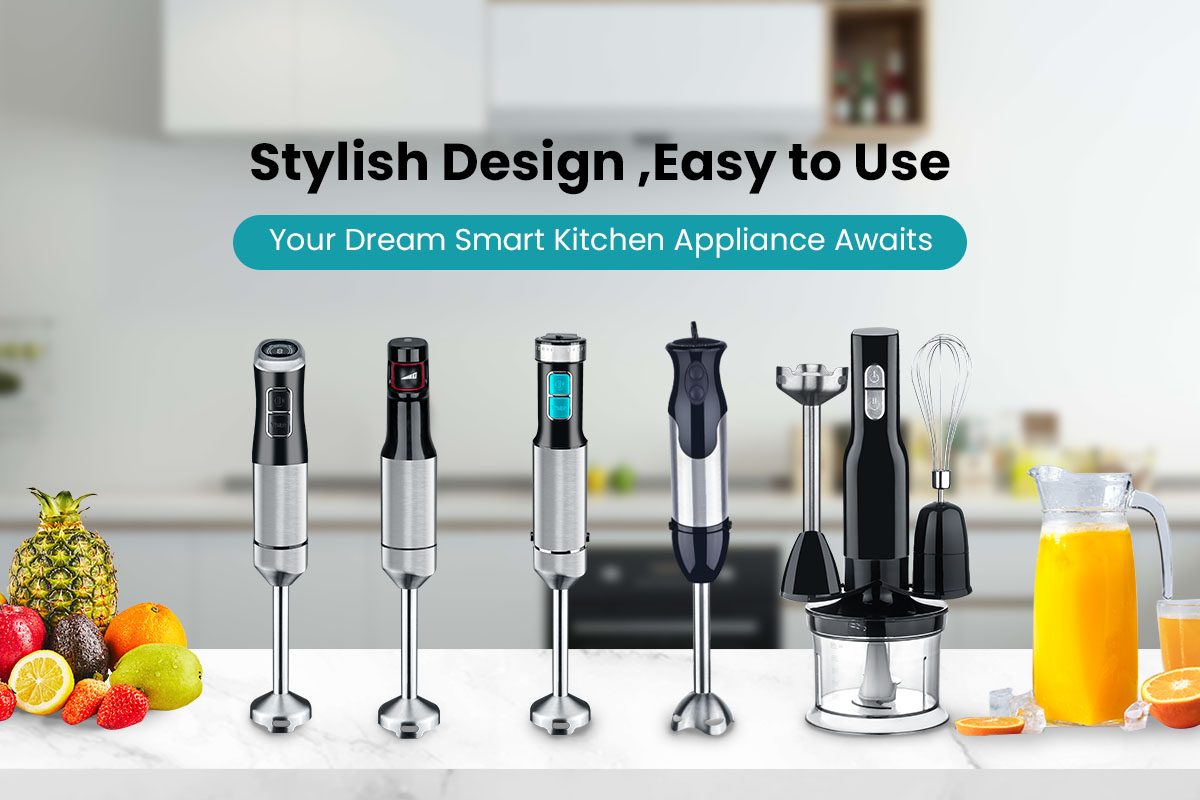Juice Blender vs Juicer Which Is Good for Business
When it concerns your business's beverages, fresh and healthy can be the only focus. This brings the need to invest in the right kind of equipment. Customers want drinks, and both of blenders and Juicers can offer the desired drinks, only with different benefits. It is crucial to consider the distinctions between a juice blender and a juicer in order to select the most suitable appliance for your situation. This paper seeks to put the two businesses side by side and describe which one of these is better for your businesses.
Juice Blender: A Useful and Flexible Machine
All kinds of blender kitchen appliances can be considered as a juicer if fruits, vegetables, nuts, ice, or any other ingredient is used without the need of disintegration and stripping off pulp and sediments as cleaning up any separator which is sectional. Juicers separate pulp from juice while blenders do not. Therefore, all nutrients and fibers contained in the ingredient remain intact. This allows thick and highly nutritious smoothies or juices to be blended.
Positive Side of Juice Blenders:
Retained Nutrients – Low Caloric Content: Looking at the blenders, you notice that the made drinks retain rough fibre, vitamins and microelements since the pulp is not thrown out.
Versatile Application: Juice blenders are much better than juicer machines since they can also be used for making sauces, soups, smoothies, and even batters as well.
Increased Efficiency: At times, blending does take lesser time than juicing and this can be beneficial for businesses which experience high demand.
Reduced Losses: Less amount of food is wasted through the use of a blender because the pulp is not discarded.
A Juice Extractor: Complexation Free Juice with Enhanced Scalars
On the other hand, pulp shredders are set and meant for the extraction of fluid only juices from vegetables and fruits. This enables the production of juice without the added pulp, meaning the juice is smoother and more appealing to businesses who want to focus on cold-pressed juices or pulp-free plastic fluid fruit and vegetable beverages.
Benefits of Using Juicers:
Optimized Juicer Output: Depending on the amount of produce being utilized, more juice is likely to be squeezed through these machines, therefore they are ideal for industries requiring high amounts of juice.
More Preference for Smoothies: No pulp would mean the liquids made are thinner and this is more acceptable to customers as it means the smoothies and juices produced are the standard types.
Quicker Setup for Bulk Juice Production: Given a large quantity of juice that has to be made, it is more effective and quicker to use a juicer than a blender in order to chop up the ingredients.
Which Is Better for Your Business?
Deciding whether to invest in a juice blender or a juicer comes down to the volume of juice expected to be produced as well as the types of drinks to be made available in the market.
Go for a Juice Blender if: You will be creating smoothies, blended juices and other beverages that are healthy and contain all the fiber and nutrients because they are not stripped off. Juice blenders are also suitable for industries that want to combine their processes into one and minimize the amount of food wasted in the process.
Go for a Juicer if: Because you want more of their focus to be adding on the output of pure juice of a higher yield and a maximum smooth pulp free consistency. A juicer is best meant for industries dealing with fresh juices or other types of cold pressed juices.
Conclusion
It is evident that both devices have their advantages and making a choice between the two would depend on the business goals or preferences of the consumers. In the case one is presented with versatility, burnt nutrition, and speed, a juice blender would be encouraged. In contrast, when there is an emphasis on high yields and smooth, fine pulp free juices, a juicer would be most appropriate. It is important to note the menu, production level, and clientele’s needs when making such a decision in order to achieve efficient operations.





